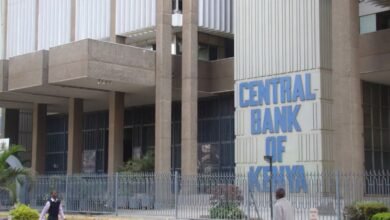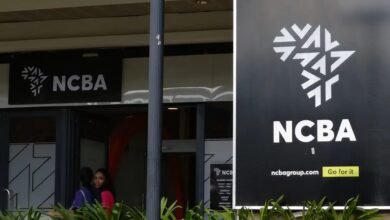
The pace of growth in business activity in Kenya during the month of March dropped to its lowest in nine months, according to the latest Stanbic Bank Kenya Purchasing Managers Index (PMI) Survey.
According to the survey, private sector companies reported only a marginal expansion in output and a slowdown in new order growth as cash flow issues limited customer spending in the wake of the third wave of the COVID-19 pandemic.
As a result, the headline Stanbic Bank Kenya PMI Index fell for the second month running in March, from 50.9 in February to 50.6.
The latest reading is the weakest seen since the recovery in economic conditions from the initial impact of the COVID-19 pandemic began last July.
The release of the survey’s latest findings come nearly two weeks after the Government imposed a partial lockdown that saw the re-introduction of cessation of movement into and out of five counties namely Nairobi, Machakos, Kajiado, Kiambu and Nakuru.
The Government also ordered a closure of bars and the re-introduction of sale of food and drinks on take-away basis by restaurants as a part of a raft of measures to contain the spread of the COVID-19 disease in the country.
According to the survey, the two largest components of the PMI, the Output and New Orders indices, signalled a slowing in both activity and demand growth in March. Businesses highlighted that cash flow problems linked to the COVID-19 pandemic meant that households often limited spending to essential items.
As a result, sales grew at the slowest rate since last November, with firms also seeing a loss of momentum from export orders.
Where a rise was recorded, firms linked this to higher customer orders. Increased activity was largely driven by the agriculture sector. However, others were led to reduce output due to cash flow issues and a drop in demand linked to the COVID-19 pandemic. Construction was the only sector to see an outright decline.
Rising fuel prices led to another sharp uptick in purchase prices, driving further pressure on firms’ margins.
The Energy and Petroleum Regulatory Authority (EPRA) raised pump prices for a second consecutive month, sparking huge public outcry over the potential impact of the fuel price hikes, which saw the price of a litre of petrol rise by Ksh.7.63 and that of a litre of diesel rose by Ksh.5.75.
Commenting on the March survey findings, Kuria Kamau, Fixed Income and Currency Strategist at Stanbic Bank Kenya said, “this month’s reading indicates a marginal improvement in business activity before the new public health restrictions were announced. Demand growth was negatively affected by a resurgence in COVID-19 which resulted in households conserving cash and prioritizing spending to essential items.”
“Output prices continued to rise, driven by higher input prices, and employment levels increased to clear backlogs of work. Firms’ outlook for output worsened on account of the resurgence in COVID-19 which is expected to affect demand,” he added.
Private sector employment improved further during March, although the rate of growth was only moderate.
Rising workforce numbers helped to reduce backlogs of work, which fell for the first time since November last year. But salaries paid to workers in the Kenyan private sector fell again in March, marking a fifth successive monthly decline.
Input purchases rose at a slower rate in March, despite efforts from some companies to build stocks in anticipation of future sales growth.
Businesses noted that an increase in local fuel prices often led suppliers to raise their charges. Output prices subsequently rose for the third straight month, but at a slower rate than input prices.
Finally, expectations for future activity slipped in March, and were the third-lowest seen in the series history. Notably, only around a quarter of survey respondents expect an increase in output over the coming year, linked to new branch openings and hopes of rising customer orders.
However, about 74 percent of firms predict no change in output amid worries of a further impact from COVID-19 on demand.





